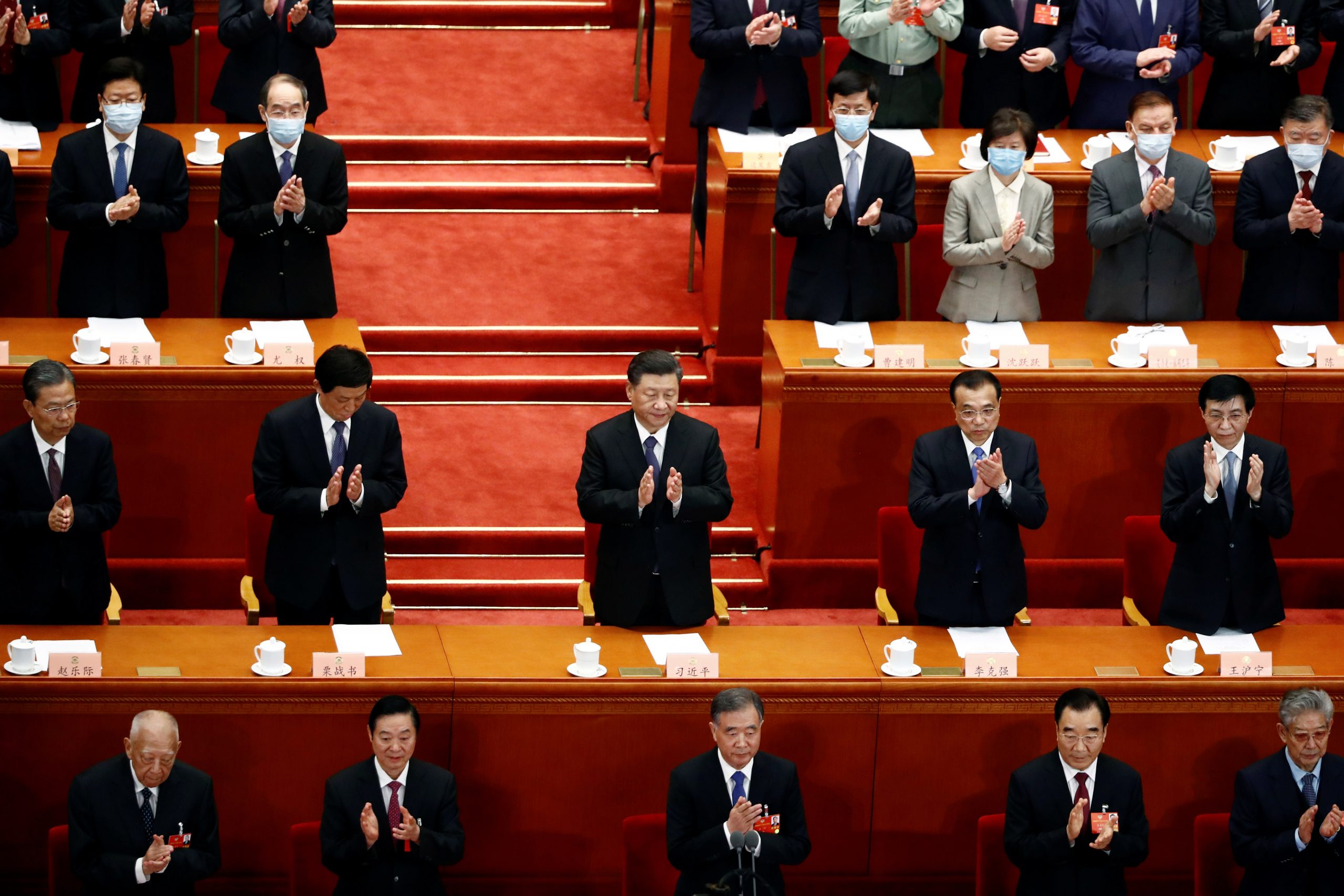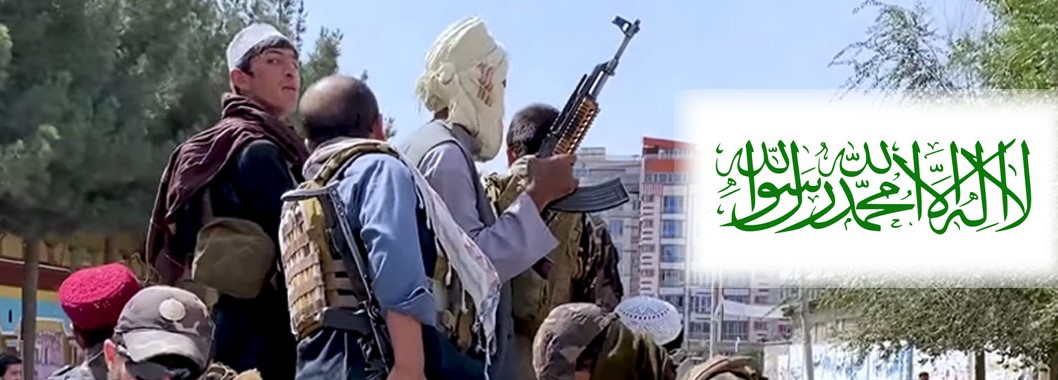The firm adherence to any belief system or religion by its followers is fraught with the danger of engendering fanaticism, bigotry and xenophobia in that community
Adil Rasheed
The once-vaunted Global War on Terror (GWOT) and even the ongoing Global Programme on Preventing and Countering Violent Extremism (PCVE) have often been criticized for being misnomers, as some commentators aver that it is untenable to wage campaigns against abstract nouns like terrorism and extremism, particularly in the absence of any internationally recognized definition of such terms.
The lack of international consensus over some of these fundamental terms of references severely impairs well-intentioned global counter-terrorism (CT) operations and sometimes even puts the effectiveness, if not legitimacy of several Counter Violent Extremism and Terrorism (CVET) campaigns to question. Terms associated with terrorism such as violent extremism, radicalism, or fundamentalism, are often used indiscriminately and at times interchangeably, not just in the popular media but even in academic literature. Often fundamentalists and non-violent radicals are equated with terrorists, which leads to legal complications. The persistence of such conceptual confusion impedes the development of effective CVET operations and programmes that need precise matrices to determine the threat and achieve quantifiable outcomes.
The firm adherence to any belief system or religion by its followers is fraught with the danger of engendering fanaticism, bigotry and xenophobia in that community. In the modern age, religious zealotry has reacted mainly to the rise of modern science and secular philosophy and a technology-driven lifestyle.
Fundamentalism can be defined as a strict and literal interpretation of religious scriptures, dogmas, or practices and a staunch adherence to irreducible beliefs or ‘fundamentals. In addition, there is great emphasis on distinguishing one’s in-group and out-group. According to Michael Bernstein:
In-groups are the groups to which individuals both belong and psychologically identify, while out-groups are those to which individuals do not belong or identify. Categorizations based on ingroup–outgroup distinctions have a profound impact on social interactions, including aspects of prejudice, reward allocation, stereotyping, and group conflict.
Additionally, religious fundamentalism, racial supremacism, as found in the ideologies of Fascism and Nazism; national and sub-national insurgencies, and revolutionary political ideologies such as Anarchism and Communism, serve as ideological drivers for violent extremism and terrorism.
In the domain of counter-terrorism, the terms radicalism and radicalization are commonly used and often misunderstood. The Oxford Dictionary succinctly defines radicalism as “in favor of extreme and complete political or social change”. The etymological origin of the word ‘radical’ lies in the Latin word ‘radix’, which means ‘the root’. In the domain of politics and international relations, radicals refer to those groups of people who seem to bring about deep-rooted and fundamental changes to the existing socio-political ideology and institutions. Thus, radicals wish to bring about a new socio-political order by uprooting the existing one.
For instance, Islamists call for throwing off Western governance systems in Muslim countries and introducing a highly purist form of Shariah rule as they claim was implemented by the Prophet and subsequently by the Four Pious Caliphs (the Rashidun).

The word ‘radicalization’ has been derived from the word radicalism and is said to have first gained currency in the 1930s to refer to the indoctrination and recruitment techniques of left-wing extremists. The usage became more dubiously popular as left-wing extremism spread across the globe by the 1960s. However, in the 2000s, the term was used for jihadist ensnarement of impressionable minds into the terrorist ranks.
In simple terms, radicalization is the transformative process that a law-abiding citizen of a state or a member of society undergoes to become a person who starts accepting principles and actions of violent extremism and terrorism.
According to a report from the United Nations Office of Counter Terrorism:
The notion of ‘radicalization’ is generally used [by some States] to convey the idea of a process through which an individual adopts an increasingly extremist set of beliefs and aspirations. This may include, but is not defined by, the willingness to condone, support, facilitate or use violence to further political, ideological, religious or other goals.
As the above definition may suggest, radicalization is today linked to extremism, which might suggest that radicalism and extremism are synonymous and interchangeable. While in most cases this might be true, it is also a fact that many academicians and experts fail to make any differentiation which is, in reality, quite subtle.
However, it would be necessary first to understand the meaning of the term ‘political extremism’. According to several security experts, political extremists refer to people who are quite dogmatic, intolerant, and hostile towards not only all competing political ideologies and philosophies but even towards their proponents. While radical actors might be fundamentally antithetical towards the existing socio-political order, they may or may not view politics as a zero-sum game. Furthermore, they may not be vehemently opposed to the existence of their rivals—be they, people of foreign origin, belonging to a different religion or supporters of a different political ideology, etc.
Thus, Gandhi was a radical leader in that he opposed the Western imperial rule of his time and practiced his version of rural socialism as opposed to capitalist colonialism. Still, he was not an extremist as he never hated or despised the British personally and used non-violence even as his means of resisting colonial excesses. Thus, radicals may not be as harsh in their actions as extremists are.
Whereas non-extremist radicals like Gandhi, Martin Luther, and Nelson Mandela can exist, who bring about a more democratic and egalitarian order, extremist radicals tend to favor a more intolerant, militant, and authoritarian dispensation. Experts like Peter Neumann make the distinction between cognitive radicalization (people who hold extremist beliefs) as against behavioral radicalization (people who take non-violent and violent action in support of radical socio-political change).
Although the meaning of radicalism and extremism remains vague in the absence of legal definitions, many strategic experts like Astrid Bötticher have sought to build academic consensus over these terminologies to bring clarity to many government-run Countering Violent Extremism and Terrorism (CVET) programmes and De-radicalization across the globe that struggle with different kinds of subjects that require more specialized attention.
There are also two other terms—violent extremism and terrorism—that are the subject of confusion and debate among security experts. Thus, violent extremism is a broader term that covers terrorism, along with hate crimes and fomenting communal clashes.
According to the Federal Bureau of Investigation (FBI) of the United States, violent extremism refers to the “encouraging, condoning, justifying, or supporting the commission of a violent act to achieve political, ideological, religious, social, or economic goals”. This is the broadest description of socially and politically disruptive activities, including terrorist attacks.
Similarly, US Agency for International Development (USAID) defines violent extremist activities as the “advocating, engaging in, preparing, or otherwise supporting ideologically motivated or justified violence to further social, economic or political objectives”.
Violent extremism also covers hate crimes ranging from hate speeches, direct physical assault, vandalizing and desecrating sacred and revered sites, property damage, lynching, verbal and physical abuse, social and/or online stalking, sticking of offensive posters and graffiti, use of weapons. Hate can be directed against members of a particular section of society based on race, ethnicity, language, religion, nationality, sexual orientation, gender, disability, wealth, etc. Violent extremism also covers sectarian and ethnic clashes that may rise to the level of genocide and ethnic cleansing in some instances.
Terrorism is just one of the manifestations of violent extremism. Unfortunately, as is well-known, there is also a lack of international consensus on the definition of terrorism. According to Alec Schmid, terrorism can be viewed as a tactic and a doctrine. As a tactic, terrorism involves indiscriminately using direct violent action against non-combatants and civilians. As a doctrine, terrorism involves the strategic belief that political goals can be achieved by coercing a government or even the international community through terrorist actions.
According to the 2011 revised academic consensus definition,
Terrorism refers, on the one hand, to a doctrine about the presumed effectiveness of a special form or tactic of fear-generating, coercive political violence and, on the other hand, to a conspiratorial practice of calculated, demonstrative, direct violent action without legal or moral restraints, targeting mainly civilians and non-combatants, performed for its propagandistic and psychological effects on various audiences and conflict parties.
Ironically, there has not just been confusion over definitions of terrorism, radicalization, and violent extremism but even counter-radicalization programmes launched by security agencies worldwide. The methodologies and terminologies used in counter-radicalization programmes were developed separately in different countries and were subject to constant revision. This, in turn, caused confusion as the matter was not just an issue of syntactical nuance but had practical implications. As each set of counter-radicalization initiatives or steps addressed a particular concern, used a unique approach, and had different standards of measurement that are applicable in different stages of the lactic cycle of radicalization—with characteristic behavior, tactics, techniques, and procedures (TTPs)—they could not be lumped under one overarching category.
On the other hand, ‘counter-radicalization programmes’ target those radicalized elements that may have not yet joined forces of violent extremism or terrorism and can be rescued before they attempt the dangerous transition. The measures suited to counter-terrorism operations include disengagement, rehabilitation and reintegration programmes. The third category pertains to ‘de-radicalization programmes’, devised for those individuals who may have already aided, abetted, or committed acts of violent extremism. Thus, these measures cover post-surrender and post-detention programmes.
However, all these three programmes still generically fall under ‘counter-radicalization’. Many of these behavior modification programmes under the categories mentioned above cover ideological or religious counselling, vocational education, recreational and psychological rehabilitation, inter-religious or inter-communal discourse programmes, post-release surveillance, and care, as well as the involvement of family members and civil society to foster rehabilitation.
Thus, we find greater clarity emerging over previously contentious issues related to violent extremism and terrorism. With more academic consensus and unanimity of views at the international levels, it is hoped that various counter-terrorism and counter-radicalization programmes would become more effective in fighting a significant threat to global security and the socio-political order.
Dr. Adil Rasheed is Research Fellow at the Manohar Parrikar Institute for Defense Studies and Analyses, New Delhi.
Views expressed are of the author and do not necessarily reflect the views of the Manohar Parrikar IDSA or of the Government of India.
This is an abridged version of the article which first appeared in the Comments section of the website (www.idsa.in) of Manohar Parrikar Institute for Defense Studies and Analyses, New Delhi on May 2, 2023



























